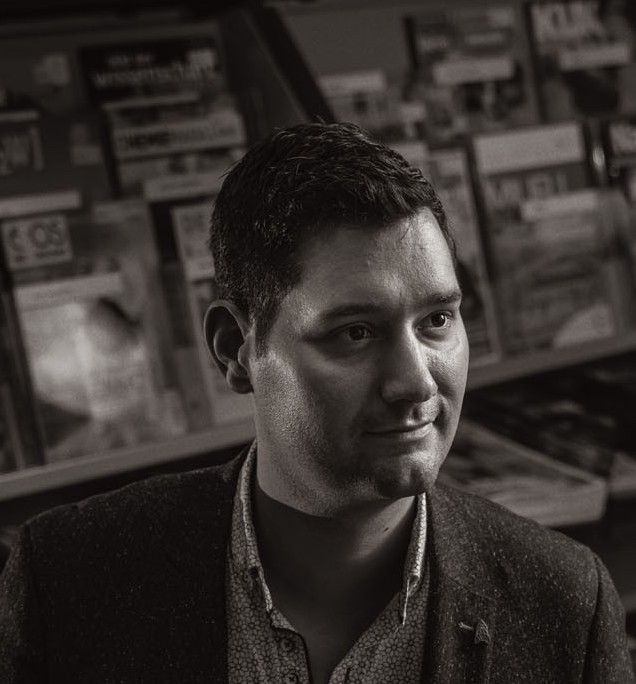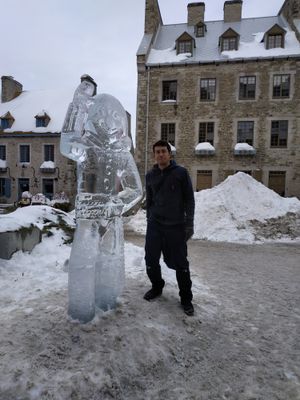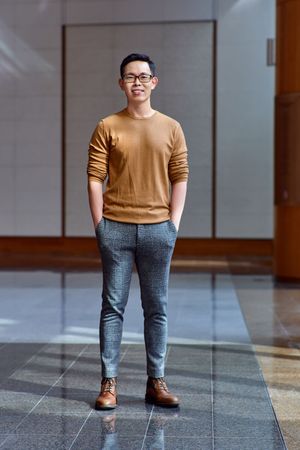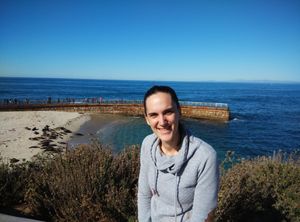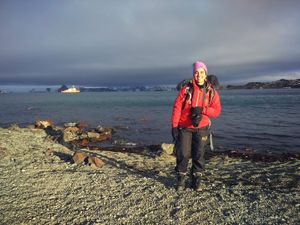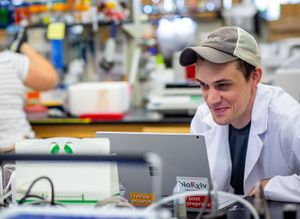On our quest to showcase our amazing editorial team, we would like to introduce you to Ewoud Compeer. Ewoud joined ecrLife in the fall of 2020 as an editor, but has been a contributing author to our blog's since its early days. He joined our blog to help early career researchers (ECRs) advocate for the changes they want to see in our academic environment. He himself is a strong advocate for involving ECRs in the peer review process, and co-authored several blog posts on this topic as an eLife ambassador. Ewoud has also been on the forefront of supporting developments in the publishing sector: he co-led a team-effort to peer review Covid-19-related preprints on bioRxiv, and convinced the preprint server to publish these peer review reports alongside the preprint article. The team also summarized these findings in a living review (possibly the first of its kind in the scientific publishing world) to help the scientific community stay up to speed with the rapid developments in the field. As you will see from his interview, Ewoud enjoys intercultural experiences, and has a very collaborative spirit (which is one of the many reasons why we love to have him on our team!).
In a few sentences, could you introduce yourself, tell us where you are (both geographically and along your career path?) and what you study?
I am a Dutch immunologist who uses cutting-edge microscopy techniques to study the communication between interacting immune cells. Upon infection, our body’s immune cells have to orchestrate an effective and specific response to fight the threat in a very short time. To this end, our immune cells have adopted fascinating communication techniques. My research shows that the cells undergo dramatic remodelling and reorganisation upon interaction and we aim to control these processes to improve future vaccine and immunotherapy strategies.
To learn the cutting-edge microscopy techniques that allow me to study these processes, I moved from the Netherlands to Boston, back to the Netherlands for my PhD, followed by a postdoc (and lots of surfing!) in Sydney, and eventually to my current postdoc position at the University of Oxford. After all this moving, I am now settling in the rolling hills just outside of London so in my past time I can enjoy long muddy hikes but a glass of wine in the centre of London too.
What do you enjoy the most about being a scientist?
As highlighted by the recent pandemic, science is global in nature and international collaboration is at the heart of its innovation. I find it incredibly rewarding to help and drive such international initiatives and engage with talented people from all over the world to collectively work on a solution and learn from each other along the way. To me, the most rewarding aspect of being a scientist is to be able to teach others what I have learned along the way and help shape the next generation of ‘global’ scientists.
What do you see as your key challenge as a scientist?
In the next few years, I’ll hopefully be transitioning into running my own research group. The key challenge here – for me and others - is to create a diverse, vibrant, and successful team that can drive international collaborative efforts. Recent world events have shown that, besides the struggle to obtain sufficient funding as an early career researcher, many other challenges can threaten the well-being and productivity of a research group. At the beginning of 2020, the United Kingdom (UK) left the European Union (EU), which created lots of uncertainty around accessibility to EU funding. Many UK scientists were dropped from EU-funded projects and were left scrambling to secure sufficient funding to keep their labs afloat. The economic downturn that followed Brexit and the COVID19 pandemic forced most major research funders to make substantial budget cuts and with increased financial uncertainty we see many academics moving to industry. Brexit and the COVID19 pandemic also halted scientist’s ability to travel, making it hard to meet new people and initiate international collaborations.
Fortunately there is light on the ‘horizon’, no pun intended, now the UK decided to stay in the EU’s flagship research program. Also the British government has now promised to boost the science budget to 2.4% GDP by 2027. Moreover, we recently founded the “Dutch Academic Network in the UK” that aims to help overcome some of these problems. For example, the network helps to meet new people, initiate new collaborations, find mentors, and stimulates the exchange of scientific ideas and scientists between the UK and the Netherlands.
Altogether, this makes me hopeful for the future and I’m looking forward to tackling these challenges one-by-one.
What is the main change that you would like to see in the scientific community?
Over the years, it seems that the focus in academia has shifted towards individual triumphs and the quantity rather than quality of published papers or other research outcomes. We are forced to focus on journal impact factors and H-indexes, while there is not much appreciation for other skills such as teaching or team management. This encourages unwanted behavior that is undermining collaboration and exchange of ideas. I believe we should do more justice to the diverse talents of all scientists and create a sustainable and collaborative culture that can optimally benefit society.
What motivates you to communicate science?
Explaining my own research to a broad audience has always helped me to see my own work in a different light and I usually gain a new understanding of my work’s impact and value. Recently though, I find myself more often communicating science to impact decision making or changing a communities’ culture. Dialogue is the first step to change, which is my main drive to communicate science.
What is your favorite thing about ecrLife?
ecrLife is a unique platform that specifically empowers early career researchers and creates space for voices that are often pushed aside for more senior scientists or opinions and experiences that may not get highlighted on other platforms. Our inclusivity allows us to showcase the true diversity of our early career researchers around the globe and is instrumental in driving real sustainable change.
About the Author: Ewoud is a postdoc in Immunology at the University of Oxford where he investigates cell remodelling that drives efficient immune cell-cell communication required for adequate immune responses. Follow Ewoud on Twitter @ewoudcompeer.
We welcome comments, questions and feedback. Please contact us at ecrlife [dot] editors [at] gmail [dot] com.
Would you like to share your own story, insight or opinion? Pitch us here.
Follow us on Twitter to stay up to speed with our latest blog post releases.

